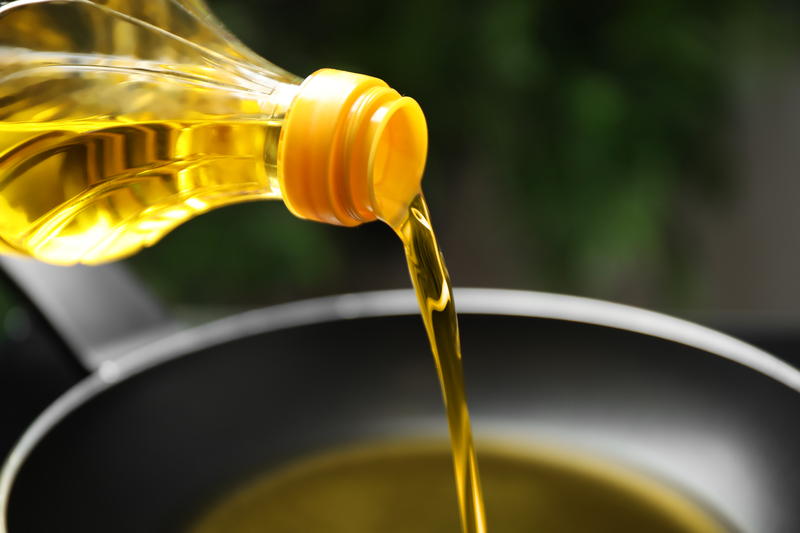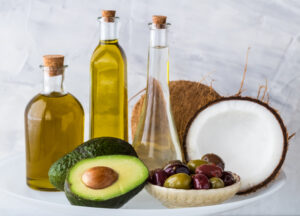
Many of the life-threatening health issues today arise from the food types consumed. Several dietary culprits including refined sugars and even the type of oil you cook with are possible explanations for the rapidly rising rates of chronic disease. Many of us are even unaware of the harmful eating habits and substances such as seed oils in our daily diets. The effect of these foods on our health can vary from low energy and brain fog to flare-ups in debilitating chronic diseases, challenges managing diabetes, and many others.
While these oils have been widely touted as beneficial to the body, they’re, in fact, making us sicker by the day. This post explains the different types of seed oils and how they can harm our body and the healthier alternatives available today.
What are Seed Oils?
Seed oils, or vegetable oils as they are commonly known, come from the plant’s seed extract and not the fruit. They first came into the picture in the early 1900s after saturated fats were discouraged by the American Heart Association for being thought to increase heart disease.
Since then, seed oils have become a staple, with many households in America using products containing the oil. The funny thing is that research never suggests seed oils have benefits over saturated fats, with some even suggesting that they’re more harmful to human health. But what makes them so dangerous? Let’s find out.
Common Types of Seed Oils
Seed oils come in many forms, some directly in cooking oil, while others as prepackaged ingredients in the processed foodstuffs you purchase. These oils are predominantly used in restaurants and fast-food chains too. Seed oils are unstable and oxidize easily, contain harmful additives, and are derived from genetically modified crops. When industrial seed oils are repeatedly heated, even more toxic byproducts are created. The common unhealthy fats to be wary of in your diet include:
- Corn oil
- Soy/Soybean oil
- Cottonseed oil
- Sunflower oil
- Safflower oil
- Grapeseed oil
- Rice bran oil
- Canola oil
Why Industrial Seed Oils are Bad for Your Health
Seed oils are among the leading causes of severe health issues today. Some of the health issues these oils directly contribute to include:
Inflammation
The body naturally requires essential fatty acids that can only be obtained from consuming proportionate Omega-6 fatty acids and Omega-3 fatty acids. These two balance the body’s inflammatory and anti-inflammatory responses when in equal ratios. Therefore, a delicate balance between omega-6 and omega-3 fatty acids must be maintained in the body to promote optimal health. Most seed oils today contain 20 times more Omega-6 fatty acids than Omega-3, which causes inflammation.
Organ Damage
The human body can handle free radicals, but only to a certain extent, after which organs begin to fail slowly. Repeated use of seed oils at home, in restaurants, or in public eateries, increases free radicals while depleting natural antioxidants so much that it damages the body’s DNA, proteins, and lipids.
Heart Disease
Oxidized and overheated seed oils produce lipid peroxides and trans-fats that cause recurring heart problems. They also promote faster aging, which impedes the function of critical body organs, including the heart.
Healthier Cooking Oil Options
Luckily, there are other healthier and delicious oils to choose from, whether you are following a Ketogenic diet or just trying to eat a healthier, more anti-inflammatory diet. Most of them are multipurpose, so you can consume them directly or use them for other purposes, such as cooking. Top choices based on this include:
- Coconut oil: A superfood with many health-promoting properties. It’s a stable oil with 90% saturated fat and lauric acid. It has antiviral, antibacterial, and antifungal properties.
- Butter: Comes from grass-fed animals and contains linoleic acid with healing and anti-cancer properties. This oil comprises 0.4 grams of polyunsaturated fatty acids (PUFAs) and 7.2 grams of saturated fats (SAFs).
- Extra virgin olive oil: This oil with health-promoting properties has existed for thousands of years. The presence of polyphenols and vitamin E in the oil makes it the best cardioprotective and anti-diabetic oil. One tablespoon has 1.9 grams of SAFs and 1.4 grams of PUFAs.
- Avocado oil: Avocado oil is oil pressed from the avocado fruit. Its mild taste and high smoke point make it a popular cooking oil, but you can also consume it raw. It is a heart-healthy oil, high in oleic acid, which is an unsaturated fat. It contains vitamin E and also helps the body absorb other fat-soluble vitamins.
- Animal Fats: Naturally occurring fats rendered from animals such as lard, tallow, bacon, goose, and duck fats are tasty and healthy to use in cooking.
Make Healthier Choices Today
Seed oils are cheap and readily available, making them a consumer favorite, but they should be avoided. Plenty of research indicates that these oils are making us sick and the price that we pay for lower-quality food, including the rise in seed oils, is greater inflammation and incidence of chronic disease. However, now that you know how harmful these oils can be, go for alternative oils with healthier ingredients.


